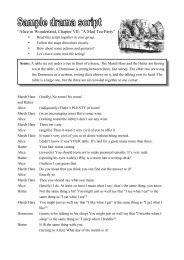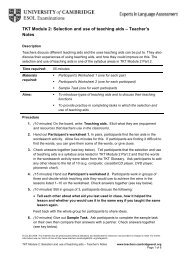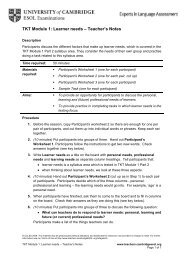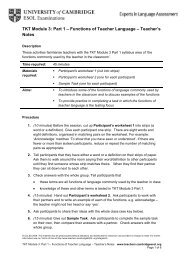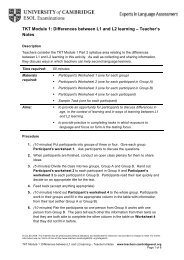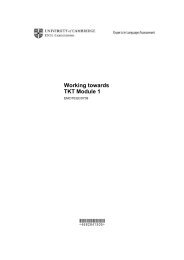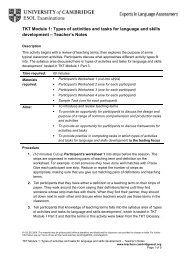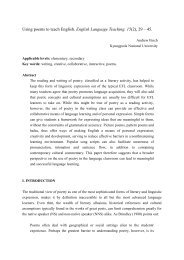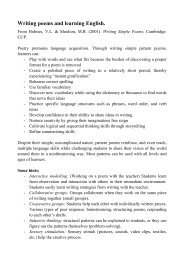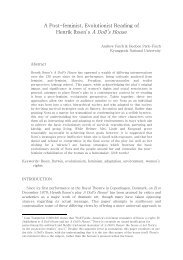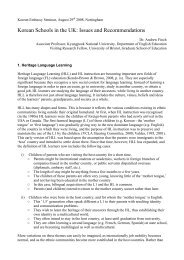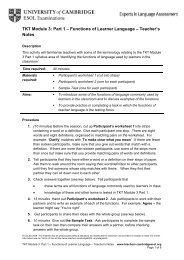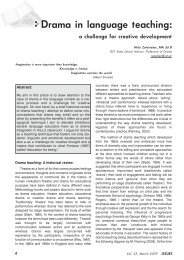Portfolios and Projects: The Understanding Crisis 1 ... - Finchpark
Portfolios and Projects: The Understanding Crisis 1 ... - Finchpark
Portfolios and Projects: The Understanding Crisis 1 ... - Finchpark
You also want an ePaper? Increase the reach of your titles
YUMPU automatically turns print PDFs into web optimized ePapers that Google loves.
4. ConclusionIt is vitally important that educators seriously address the "underst<strong>and</strong>ing crisis" <strong>and</strong>reinvestigate the purpose of education, the role of the teacher, <strong>and</strong> the expectations ofsociety. In an era in which unlimited information is publicly available on the Internet, <strong>and</strong>in which rapid advances in technology make the conventional teacher's learning irrelevant,we must look at the assumptions that underlie our educational practices <strong>and</strong> ask thequestion "Why?":• Why are we content to blame external factors for the unmotivated students inour classes?• Why do we force students to come to school so that we can label them asunsuccessful learners?• Why do we impose old ideas on students who are much more adept than theirteachers in terms of new concepts?• Why are we afraid of a learning environment in which the learner learns whathe/she wants to learn?• Why do we cling to the authoritarian view of the teacher?<strong>Portfolios</strong> <strong>and</strong> projects offer a response to these questions, <strong>and</strong> this response satisfieshumanistic <strong>and</strong> holistic goals which have been at the core of education since ancient times,<strong>and</strong> which are supported by the Korean Ministry of education. It is therefore up to us ascaring educators to seize the moment, <strong>and</strong> to incorporate socially aware practices into ourclassrooms:<strong>The</strong> more the teacher humanizes his teaching, the more teaching humanizes him.<strong>The</strong> more the teacher cares for his students, the more they will care for him. <strong>The</strong>more the teacher frees his students to grow, the more he frees himself to grow.(Pine & Boy 1977:237).5. Socratic DialogueGiven the various references in this presentation to a rediscovery of educational values(C<strong>and</strong>lin 1989; Kohonen 1989), the presenters engaged at this point in a dialogue, whichthey hoped would further amplify the ideas contained in the presentation/workshop. <strong>The</strong>dialogue is reproduced below:



